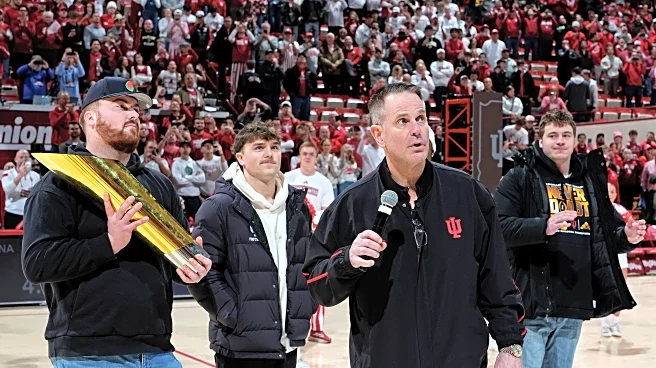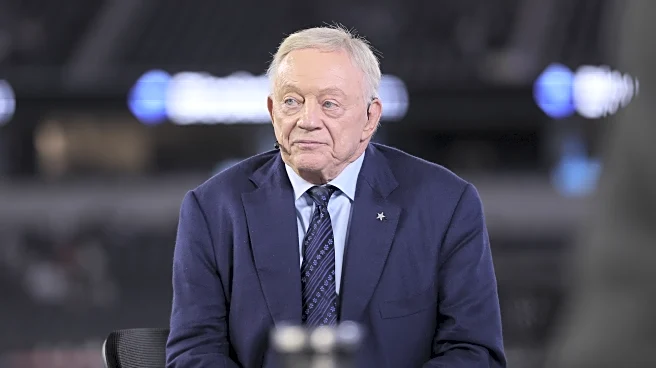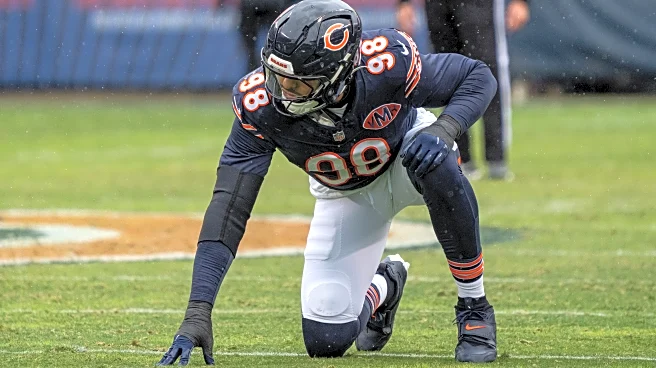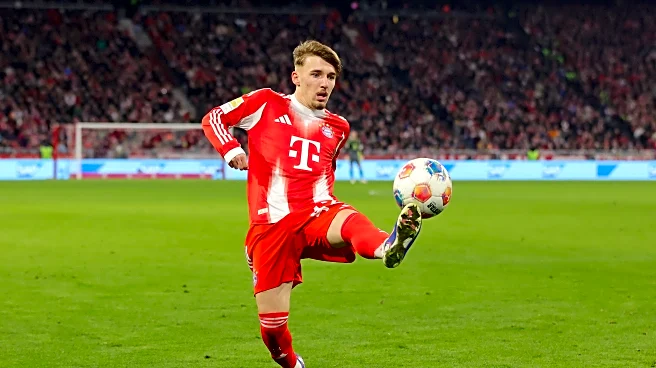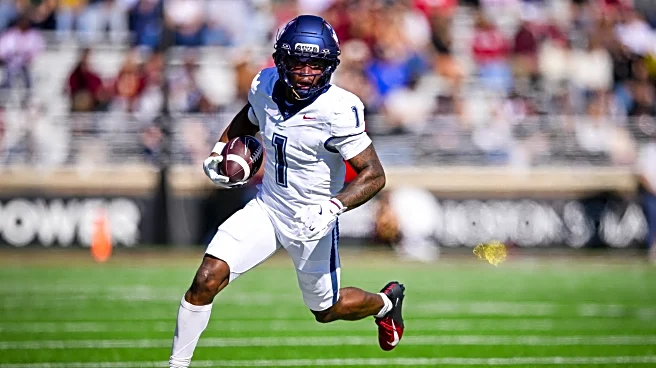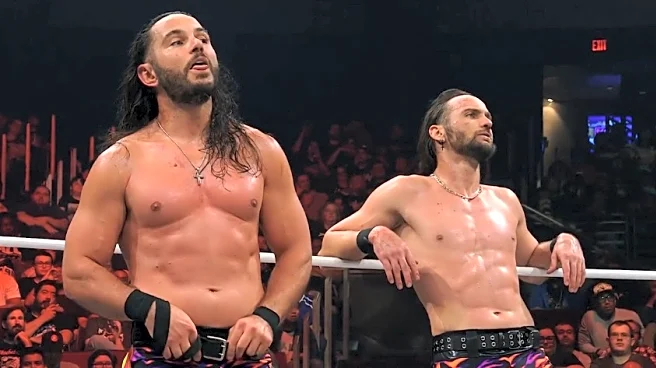What's Happening?
Vaibhav Suryavanshi, a 14-year-old cricket prodigy, scored a remarkable 32-ball century during the Asia Cup Rising Stars 2025 opener in Doha, leading India 'A' to a commanding victory over UAE. His innings
included 11 fours and 15 sixes, culminating in a total of 144 runs off 42 balls. This performance helped India 'A' achieve a total of 297 for 4, marking the joint fifth-highest total in men's T20 cricket. Suryavanshi's century is the joint-second fastest by an Indian in men's T20s, equaling Rishabh Pant's 2018 record and trailing only the 28-ball centuries by Urvil Patel and Abhishek Sharma in the Syed Mushtaq Ali Trophy 2024. Overall, it ranks as the joint-fifth fastest century in T20 cricket history.
Why It's Important?
Suryavanshi's achievement highlights the emergence of young talent in Indian cricket, potentially influencing team selection and strategy in future tournaments. His performance not only sets a new benchmark for speed and skill in T20 cricket but also underscores the growing competitiveness of youth cricket leagues. This could lead to increased investment in youth development programs and scouting efforts by cricket boards. Additionally, Suryavanshi's success may inspire other young athletes, contributing to the sport's popularity and growth in India and beyond.
What's Next?
Following this record-breaking performance, Suryavanshi is likely to attract attention from national selectors and cricket academies, potentially accelerating his path to higher levels of competition. His continued success could lead to sponsorship opportunities and media coverage, further boosting his career. As the Asia Cup Rising Stars 2025 progresses, Suryavanshi's performance will be closely watched, with expectations for him to maintain his form and contribute significantly to India's campaign.
Beyond the Headlines
Suryavanshi's achievement raises questions about the pressures faced by young athletes in competitive sports. His ability to handle expectations and perform under pressure may serve as a case study for sports psychologists and coaches. Additionally, his reliance on family support, particularly his father's influence, highlights the role of parental guidance in nurturing young talent. This aspect could lead to discussions on the balance between parental involvement and independence in sports training.




